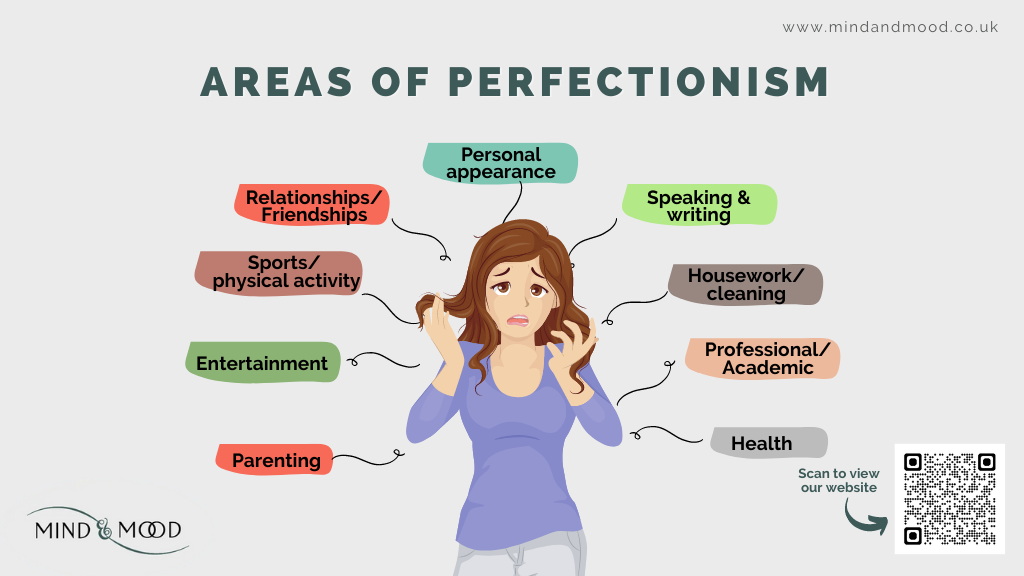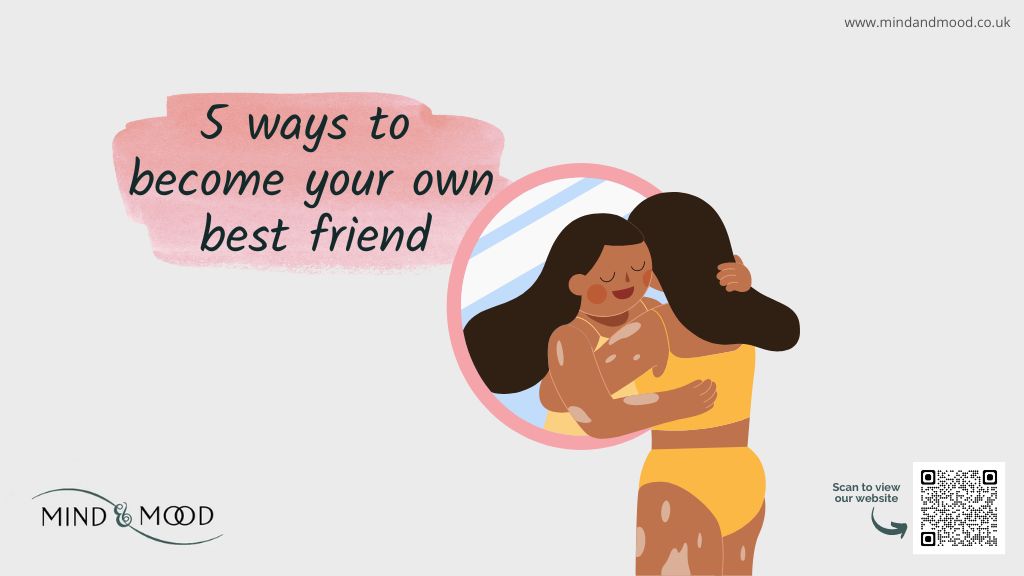In our society, there is a great emphasis on perfectionism. We are taught from a young age that in order to be worthy and approved, we must be successful. This pursuit of perfection can lead to anxiety and depression when we inevitably fall short. It knocks down our confidence in ourselves and can even lead to social isolation.
Many people I talk with tell me that they always thought “Perfectionists are the perfect people, who do everything perfectly”, nothing can be further from the truth. Firstly, let’s be clear, nobody is perfect. You might think that some people have everything and that they have the perfect life; well, they don’t! It may look like they have the perfect job, perfect family life, perfect house and so on, but we just don’t know their story and just making assumptions.
The lovely people, who were kind enough to let me interview them indicated that they found themselves setting unrealistically high standards in several areas of their lives. Although perfectionism can affect many parts of our lives, it majorly seems to be effecting the following areas:
Professional and/or academic work: You are more likely to be beating yourself up for any grades other than the highest, or constant success professionally. You may recently have got a promotion, but if you did not get promoted next time, it is very likely that you will dismiss your previous successes and doom yourself to be a failure.
Personal appearance: This is also one of the common areas of perfectionism that causes worry about how you look and dress. You may find spend a lot of time trying to find the right clothing for a social event, then still feel anxious, because you worry that it may not be the perfect outfit for the occasion anyway.
Sports, physical activity: You may find yourself constantly checking the timing of your performance and of the others, often comparing and perhaps even despairing.
Intimate relationships and friendships: Going out of your way, making many sacrifices to be the best friend, the best partner, and worrying when other friends meet up more or call each other more than they contact you.
Your expectations may also be high from them and perhaps sometimes hard for other people to live up to those relentlessly high standards, which can have a strain on all types of relationships.
Housework/cleaning: You might feel stressed or even anxious if your home is not always tidy and immaculate. You may end up doing all the cleaning and tidying yourself, because others may not do it up to your standards, and fearing that friends coming to your home may judge you if it is not orderly and clean is also a part of this area.
Parenting: I think many mums can recognise this. The worry about no matter what you do, you may not be doing a good enough job as a parent. This also comes with the fear that if you are not doing the perfect job as a parent, you might be responsible and damage your child’s psychology and future somehow.
Social occasions: I often hear my clients saying “I worry that I may not have interesting enough things to say and they may think I am boring”. So there is this sense that we have the responsibility to entertain everyone so the others really enjoy your company, or simply being the best host for your guests.
Decision making: This type of perfectionism can be quite paralysing because of the fear of making a wrong decision and the consequences that it may bring. They say “any decision is better than no decision at all”.
Do you recognise any of these areas causing you stress and anxiety, because either you or others don’t live up to your high standards? It is never too late to explore your unhelpful beliefs and make changes that would take you towards a happier and more fulfilling life. Email me at aylin.webb@mindandmood.co.uk to arrange a free consultation.




